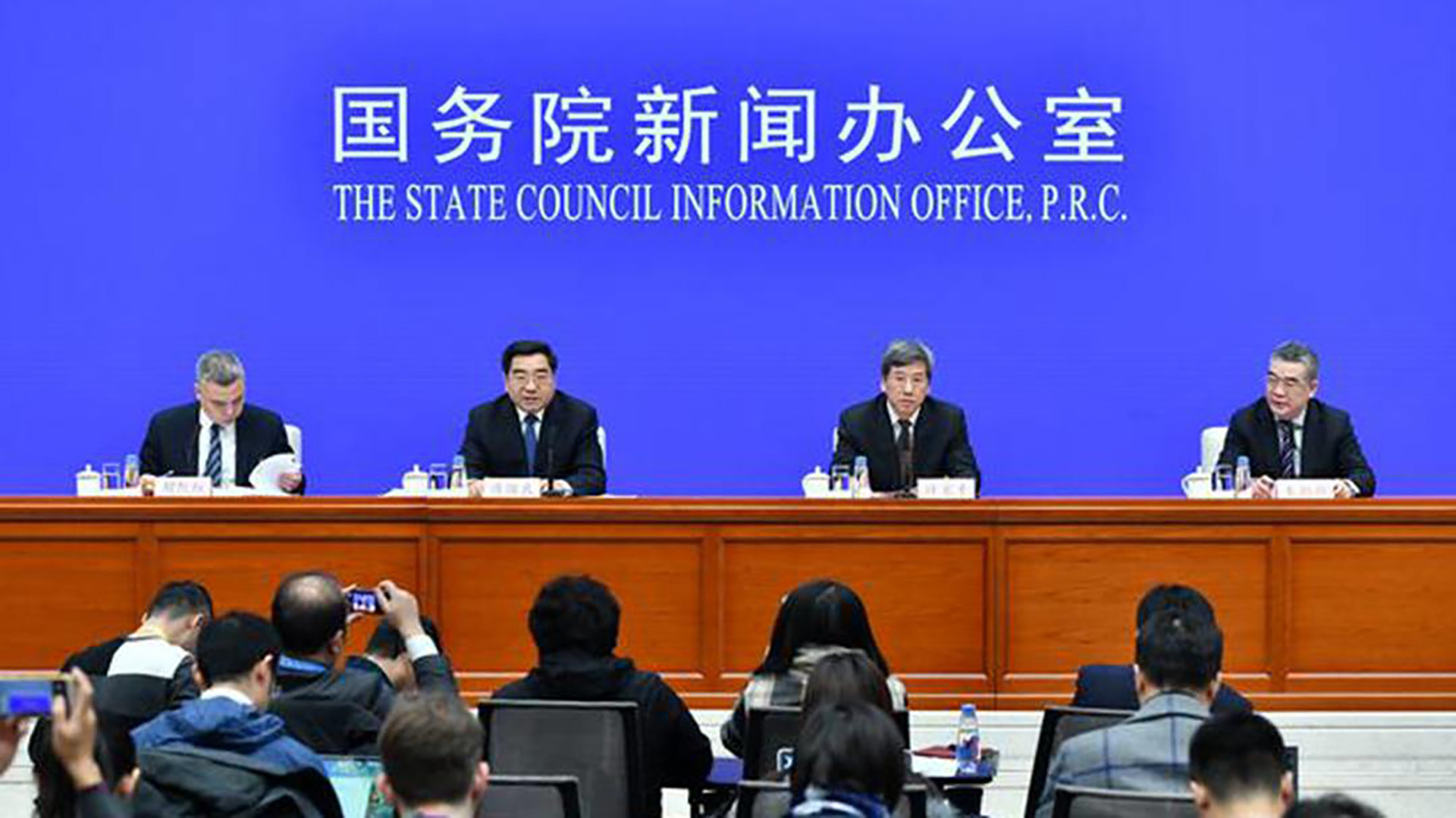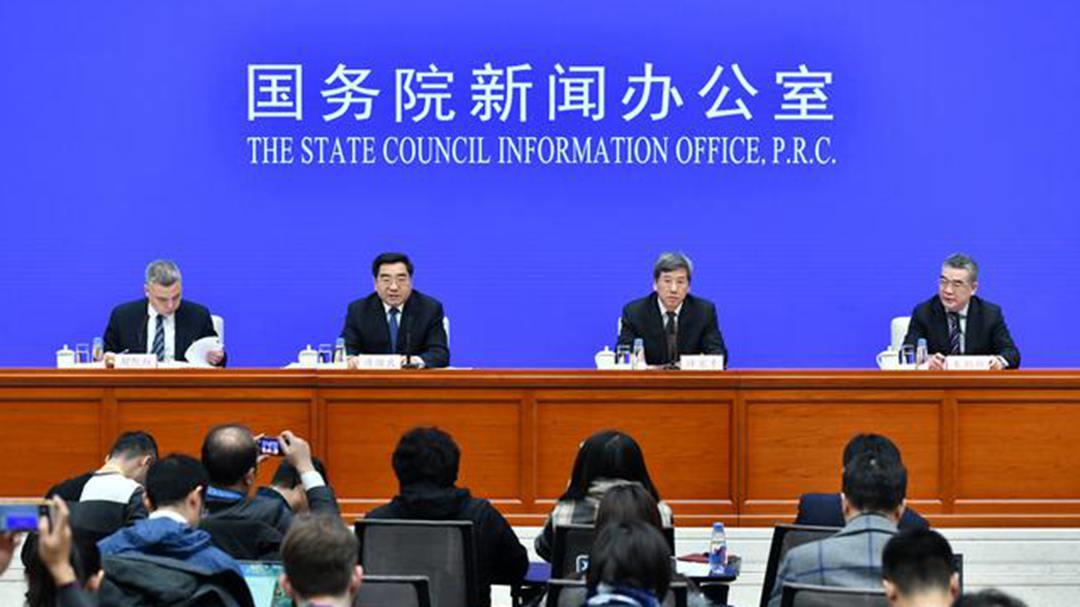
Economy
17:47, 15-Jan-2019
China vows to lower taxes, build strong economy
Updated
19:36, 17-Jan-2019
By Wu Guoxiu
01:55

China introduced new tax cuts with officials announcing the efforts to stimulate the country's domestic economy at the Central Economic Work Conference. On Tuesday, the nation's
Chief economic bodies on Tuesday unveiled some of the measures.
From individuals to corporations, China cut 1.3 trillion yuan worth of taxes in 2018. As one of the major decisions made during last month's Central Economic Work Conference, further tax cuts will "dramatically" be made in 2019. China's Finance Ministry said small and micro businesses could enjoy a 5 to 10 percent corporate tax rate versus the standard 25 percent.

State Council Information Office press conference on measures for the implementation of decisions of Central Economic Work Conference, January 15, 2019. /Xinhua photo
State Council Information Office press conference on measures for the implementation of decisions of Central Economic Work Conference, January 15, 2019. /Xinhua photo
Xu Hongcai, assistant minister of finance, said: "Over 95 percent of companies will be defined as small and micro businesses... in total that's nearly 18 million tax-paying businesses. Among them, 98 percent are private companies."
Some experts believe the corporate tax-cut is urgently needed in China. “At the moment, we are facing challenges from outside, protectionism and the businesses are influent by foreign policies. So the tax-cut is a major task for the Chinese government. The tax income is a major fiscal income for China, it's really a huge burden in the last two decades”, said Liu Zhiqin, senior research fellow of Chongyang Institute for Financial Studies at Remin University.
The private and small businesses will also enjoy favorable policies, particularly in getting loans.
"The central authorities highlighted 'stabilizing employment' while planning for the economy this year. Policies of tax-cutting and general finance announced today, all aim to push private, small and micro businesses to increase job vacancies, and hedge the challenges brought by an economic slowing-down pressure", said Lian Weiliang, deputy director of the National Development and Reform Commission.
Facing economic challenges, China plans to strengthen its domestic economy by encouraging investment. Starting this year, the nation will adopt a negative list for market access, enabling private economies to access to more industries. Authorities also vow to cancel all foreign investment restrictions outside the list.

SITEMAP
Copyright © 2018 CGTN. Beijing ICP prepared NO.16065310-3
Copyright © 2018 CGTN. Beijing ICP prepared NO.16065310-3